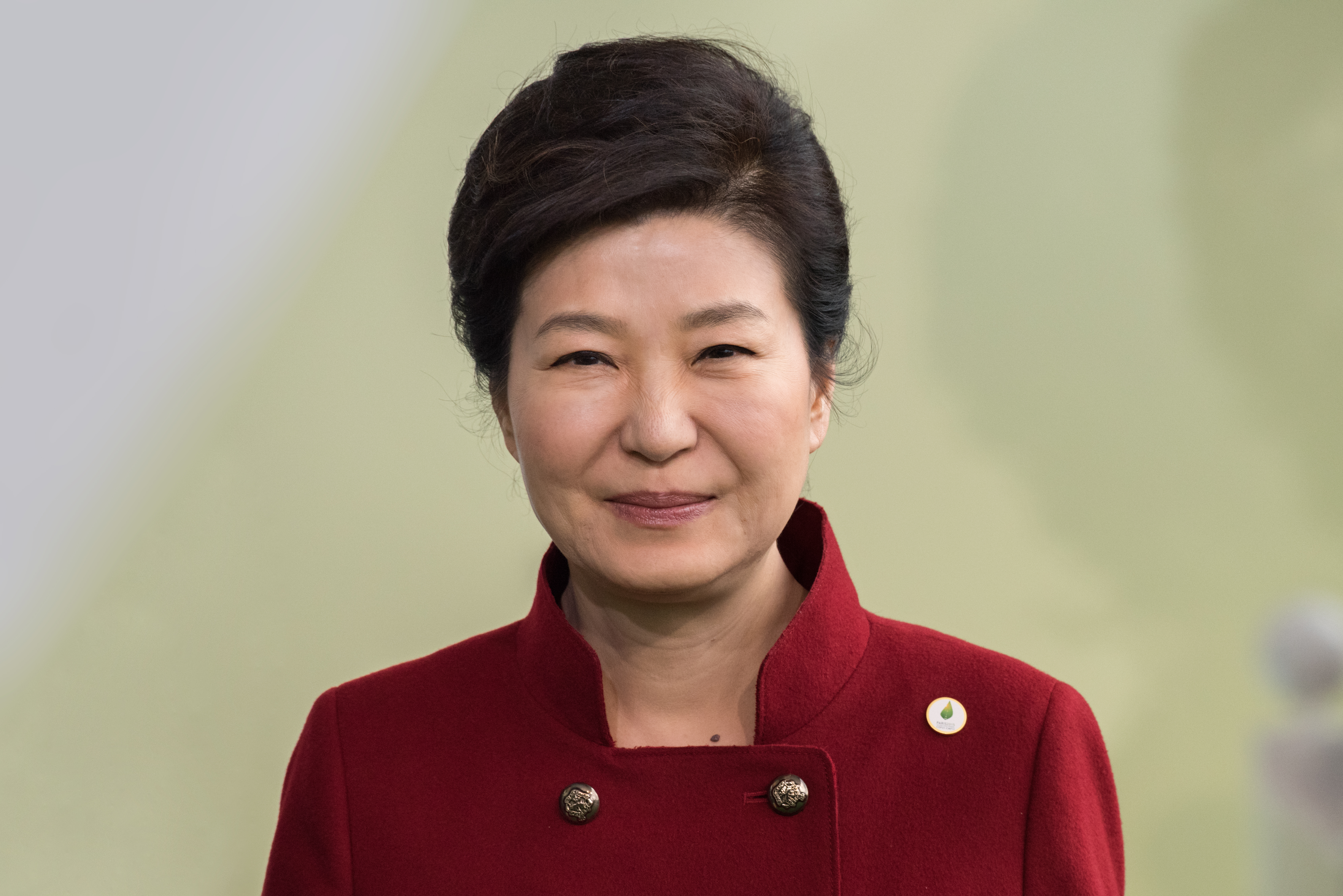Park Geun-hye << pahk goon heh >> (1952-…) was the first woman president of South Korea. She served from 2013 to 2017, when she was removed from office over accusations of corruption. Park led the conservative New Frontier (or Saenuri) Party, which was formerly the Grand National Party (GNP). She is the daughter of Park Chung-hee, who was president of South Korea from 1963 to 1979.

Park Geun-hye was born in Daegu (also spelled Taegu), South Korea, on Feb. 2, 1952. In 1961, Park Chung-hee led a successful military revolt against South Korea’s civilian government. For two years, he headed a military government. In 1963, he resigned from the army and was elected president of a new civilian government. Under Park Chung-hee, South Korea’s economy grew rapidly. However, he also greatly limited individual rights and kept a tight grip on power. See Park Chung-hee.
In 1970, Park Geun-hye graduated from Sacred Heart Girls’ High School in Seoul. In 1974, she earned a bachelor’s degree in electronic engineering from Sogang University in Seoul. She then moved to Paris to continue her studies. Her schooling was cut short, however, due to family tragedy. Her mother was killed on Aug. 15, 1974, in an attack that was intended to kill Park Chung-hee. Park Geun-hye returned to South Korea and became acting first lady. On Oct. 26, 1979, Park Chung-hee was assassinated by the head of the country’s Central Intelligence Agency (now the National Intelligence Service).
After her father’s assassination, Park Geun-hye stayed out of politics until she was elected to South Korea’s National Assembly in 1998. From 2004 to 2006, she served as chairwoman of the GNP. In 2012, the GNP was renamed the New Frontier Party. That same year, Park Geun-hye was elected president. She took office in February 2013.
In 2016, hundreds of thousands of South Koreans protested against Park’s rule after it was revealed that she had allowed a personal friend access to secret government documents. Park was also accused of helping pressure South Korean companies to donate large sums of money to nonprofit foundations run by the friend. In December, South Korea’s National Assembly voted to impeach Park over the scandal. In March 2017, the country’s constitutional court upheld the parliamentary vote, and Park was removed from office. In April 2018, Park was sentenced to 24 years in prison for corruption. In July, she was sentenced to an additional 6 years for abuse of funds and 2 years for election law violations. In 2020, the sentences for corruption and abuse of funds were reduced to 15 years and 5 years. The Supreme Court upheld those sentences in January 2021. However, Park received a special pardon from South Korea’s president at the end of 2021.
